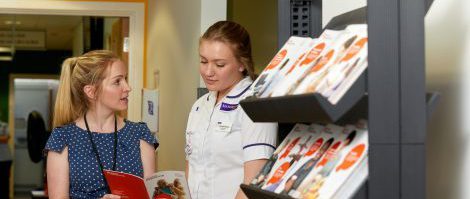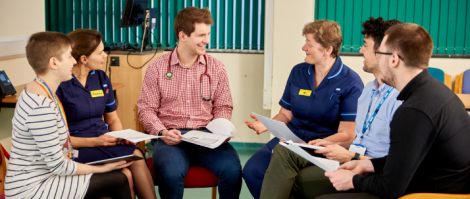Non-urgent advice: Health Literacy
NHS library staff role; learning about health literacy; digital literacy
Health literacy is defined as ‘the personal characteristics and social resources needed for individuals and communities to access, understand, appraise and use information and services to make decisions about health’ (World Health Organization, 2015). There is a responsibility on organisations to support accessibility, such as through improved signage, as well as enabling individuals to develop skills.
Library and knowledge specialists are ideally placed to increase colleagues’ awareness of health literacy. Librarians support information assessment (or information literacy) as a core role. If people question information sources generally, they can apply these skills to health literacy.
Finding out about health literacy levels
In England, 43% adults find it hard to understand written health information, rising to 61% struggling once numbers are added (Rowlands, 2015).
Health literacy levels in England are very low and they vary significantly. An individual who is anxious or in shock will have a lower level of health literacy than usual. There are also geographic variations. Find health literacy levels by local authority area.
Learning more about health literacy
You can develop your skills and knowledge of health literacy, including techniques you can use to support health-literate conversations. The links below have varied resources as well as this link to an online elearning package on Health Literacy developed by Health Education England and NHS Education for Scotland
You may wish to read through health literacy how to guides before you start out on your journey. There are also a wide range of health literacy case studies you can access for inspiration.
Digital literacy
Health literacy is underpinned by digital literacy. The NHS Long Term Plan underlines the importance of technology in the future NHS. To interact with the NHS, citizens will need to have digital skills. These are skills in navigating digital health information.
The recommendations from an independent review of the digital skills needed by the future healthcare workforce (Health Education England, 2019) led by Prof Eric Topol included skills development for citizens, patients and carers.
- engaging and educating the public about genomics and digital healthcare technologies (P1)
- work with patient and carer organisations to support patient education (P2)
- needs-based targeted education and support through existing patient support provision (HI1)
Librarians in educational and public libraries support the core information and digital skills of the public. By working in partnership, NHS librarians can support health literacy alongside digital skills development in other sectors.

